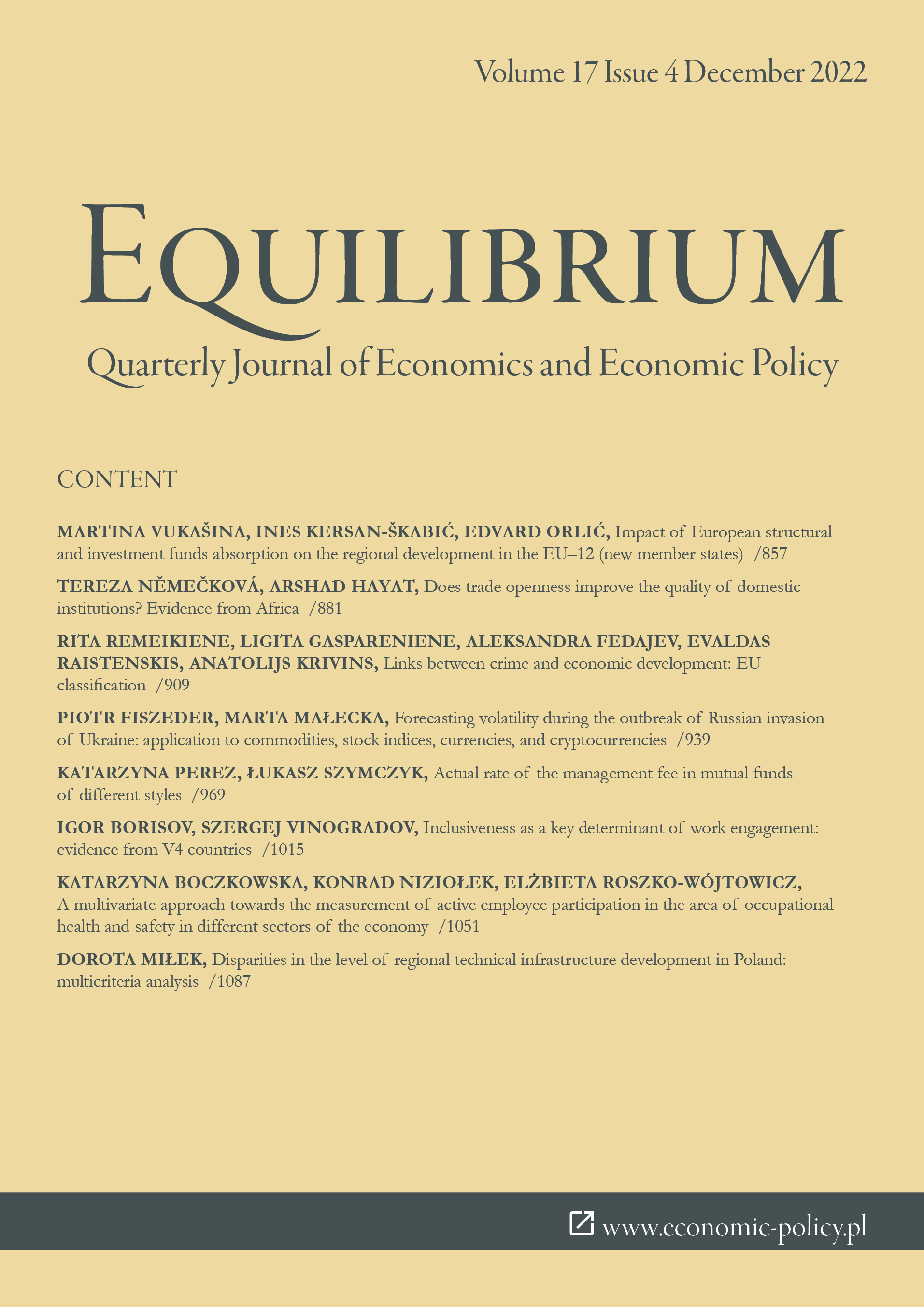Inclusiveness as a key determinant of work engagement: evidence from V4 countries
Inclusiveness as a key determinant of work engagement: evidence from V4 countries
Author(s): Igor Borisov, Szergej VinogradovSubject(s): Business Economy / Management
Published by: Instytut Badań Gospodarczych
Keywords: empowerment; workplace autonomy; organizational learning environment; structural equation modeling;
Summary/Abstract: Research background: There is currently a need for empirical research regarding the validity of specific work environment model elements supported by strong statistical evidence. The amount of research conducted in this field has been particularly limited in Central-Eastern Europe. The desire to fill in these gaps was at least in part responsible for the uniqueness of the research approach and its differences from previous similar studies.Purpose of the article: The purpose of this study was to examine factors affecting employee engagement and to examine their relationship with each other using Visegrad countries as an example.Methods: The initial data is taken from the fourth European Company Survey (2019) for management respondents. After data cleaning, the sample sizes for Czechia, Hungary Poland, and Slovakia are N(CZ)=904, N(HU)=682, N(PL)=511, and N(SK)=361, respectively. As a result of the exploratory factor analysis (EFA), the following five dimensions were identified for this research: (1) inclusiveness, (2) empowerment, (3) work autonomy, (4) organizational learning environment, and (5) work engagement. An analysis of structural equation modeling (SEM) was conducted to determine the links that exist among these dimensions of a constructive work environment.Findings & value added: The structural model indicates that inclusiveness and empowerment have a significant positive impact on work engagement in all the countries examined. Inclusiveness was the strongest predictor of work engagement, followed by empowerment. Both of the two other predictors in the model (workplace autonomy and organizational learning environment) generally had less or no effect on employee engagement. The present study extends recent literature on work engagement by empirically validating the influence of workplace environment-related factors, as well as providing useful organizational policy recommendations for managers.
Journal: Equilibrium. Quarterly Journal of Economics and Economic Policy
- Issue Year: 17/2022
- Issue No: 4
- Page Range: 1015-1050
- Page Count: 36
- Language: English

